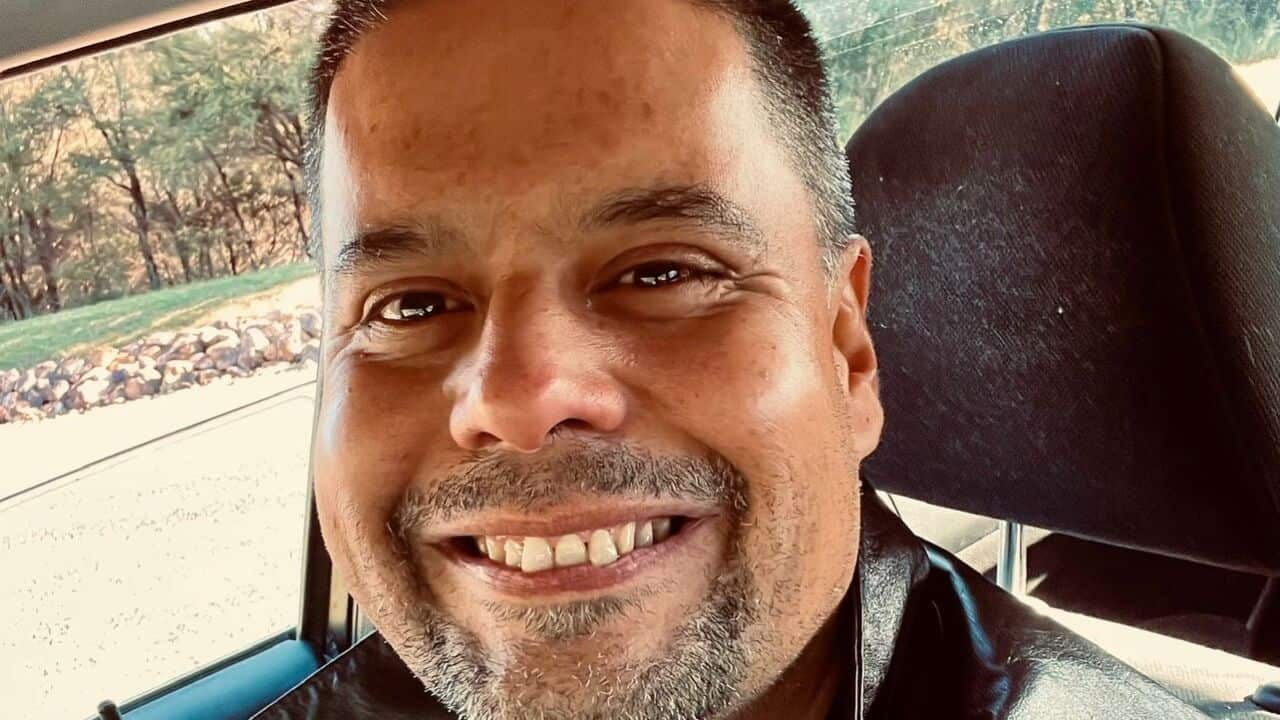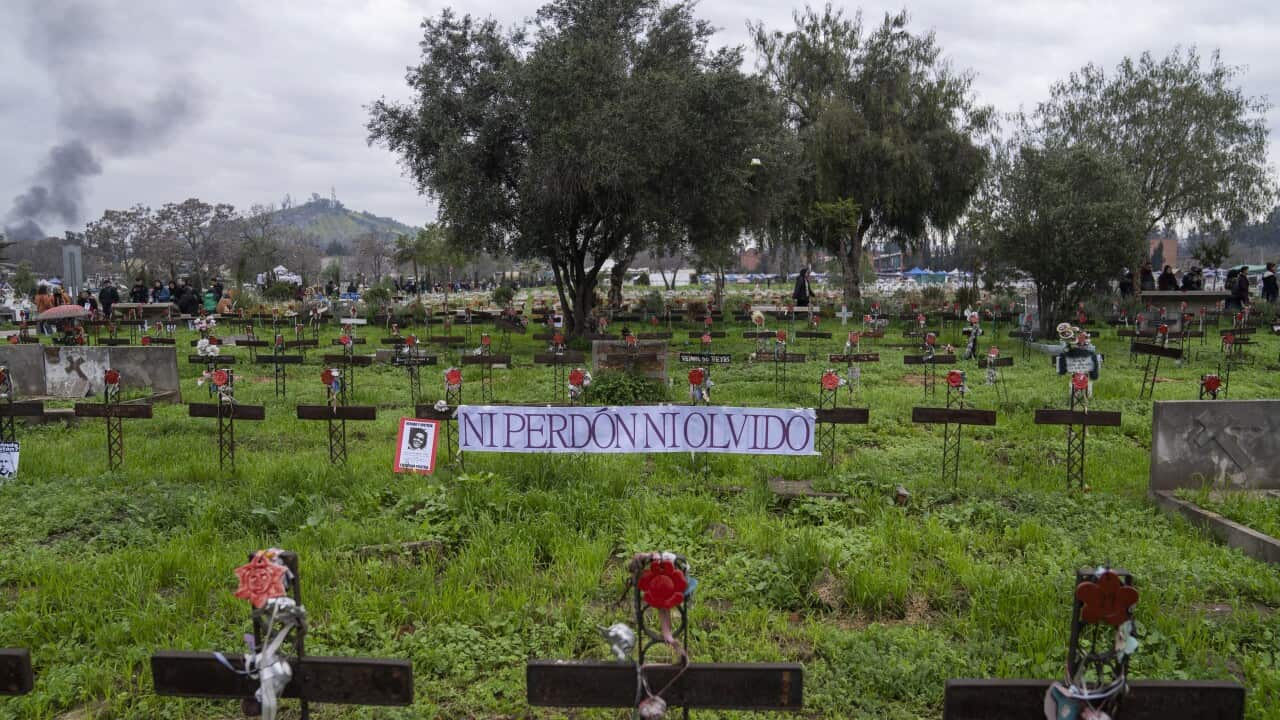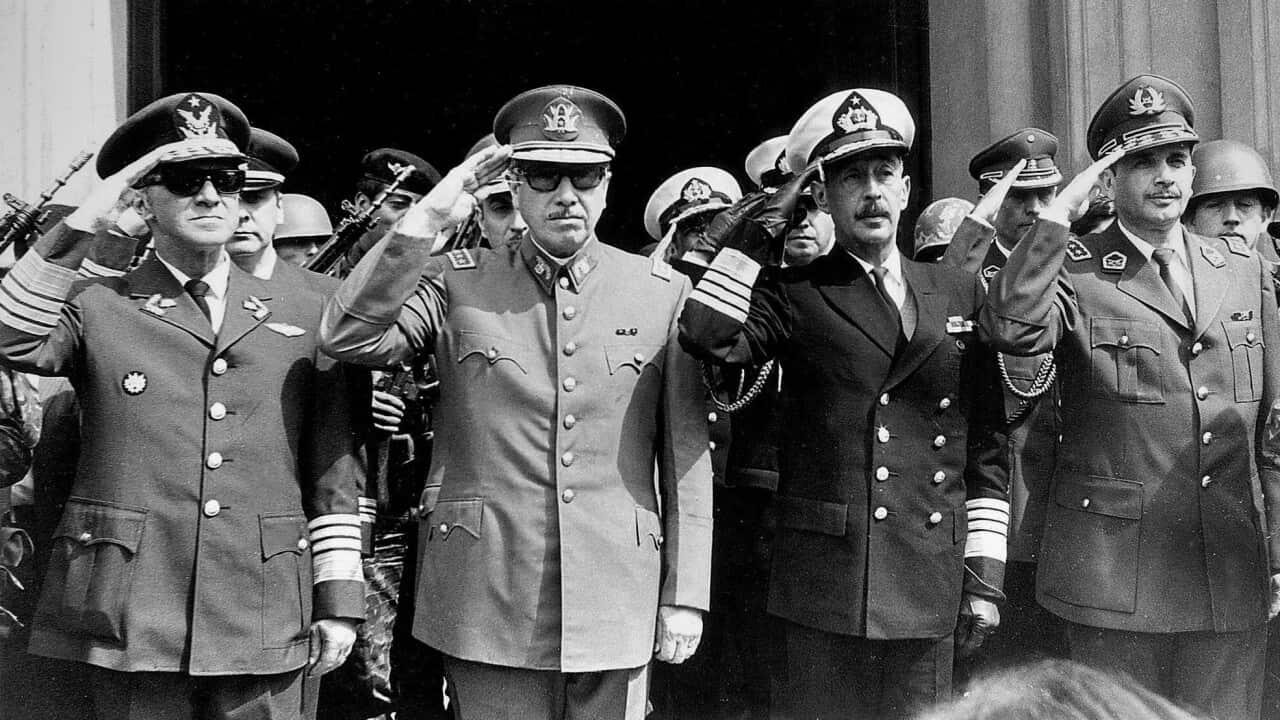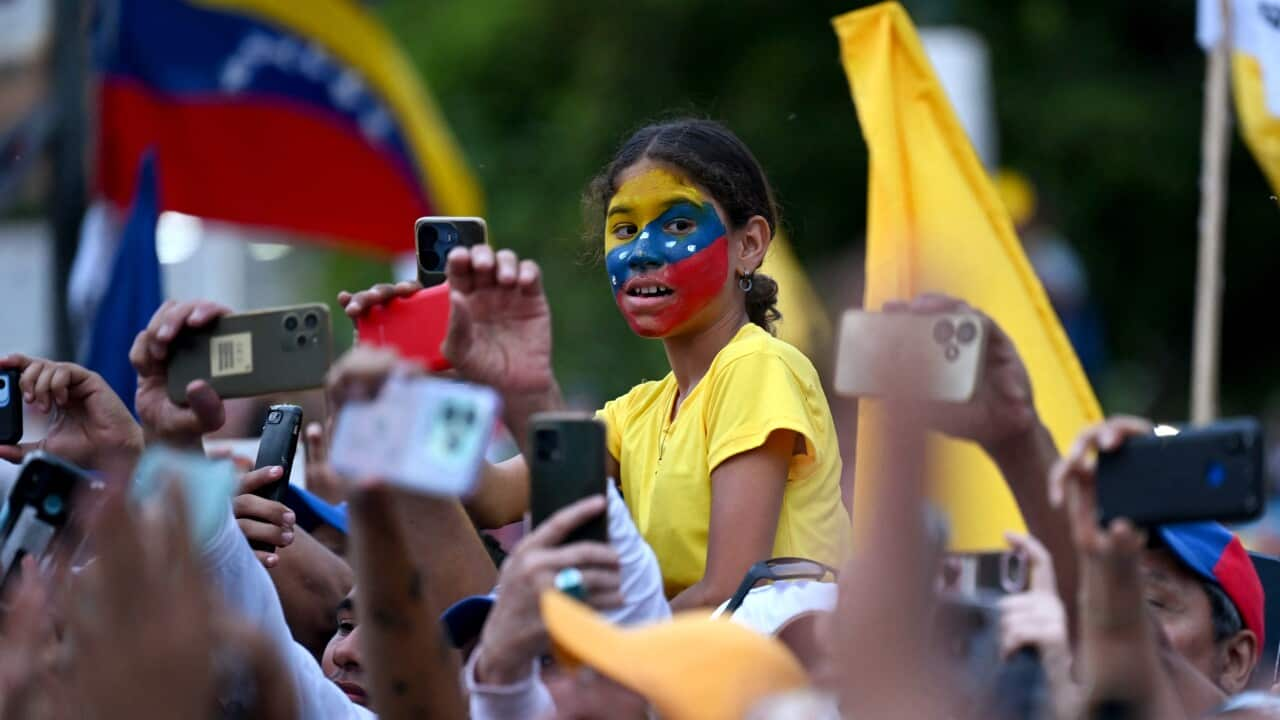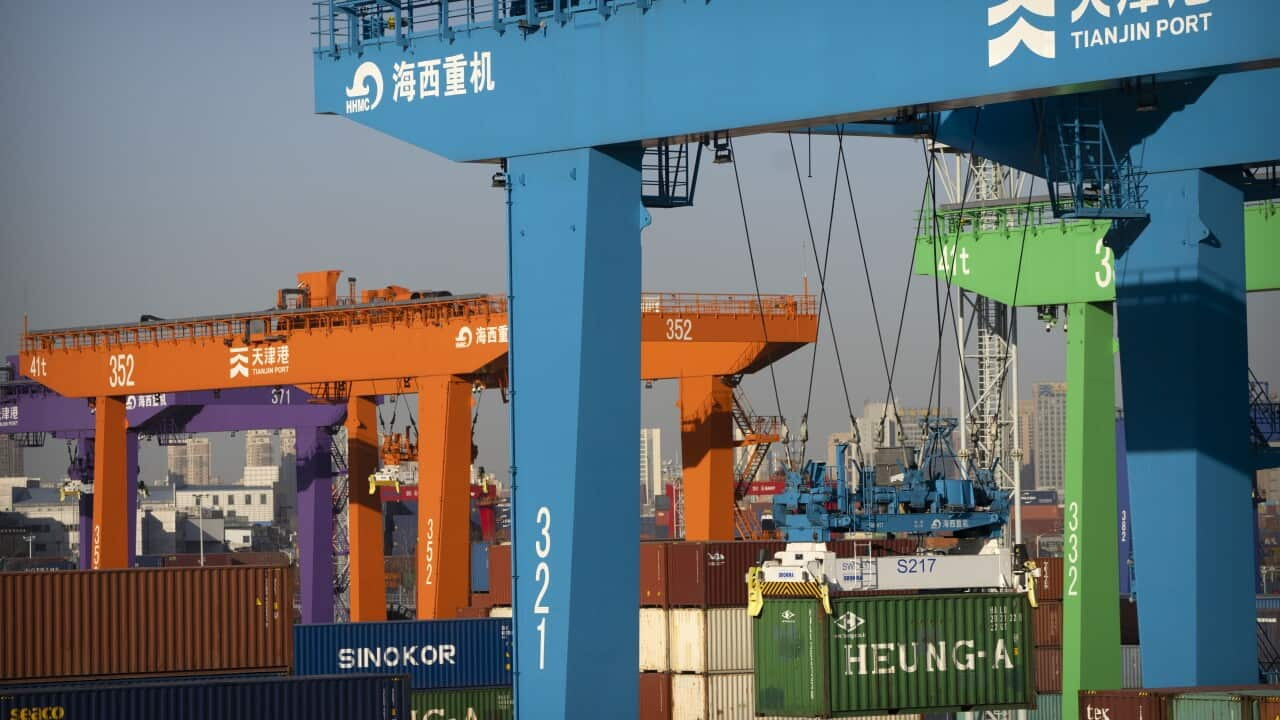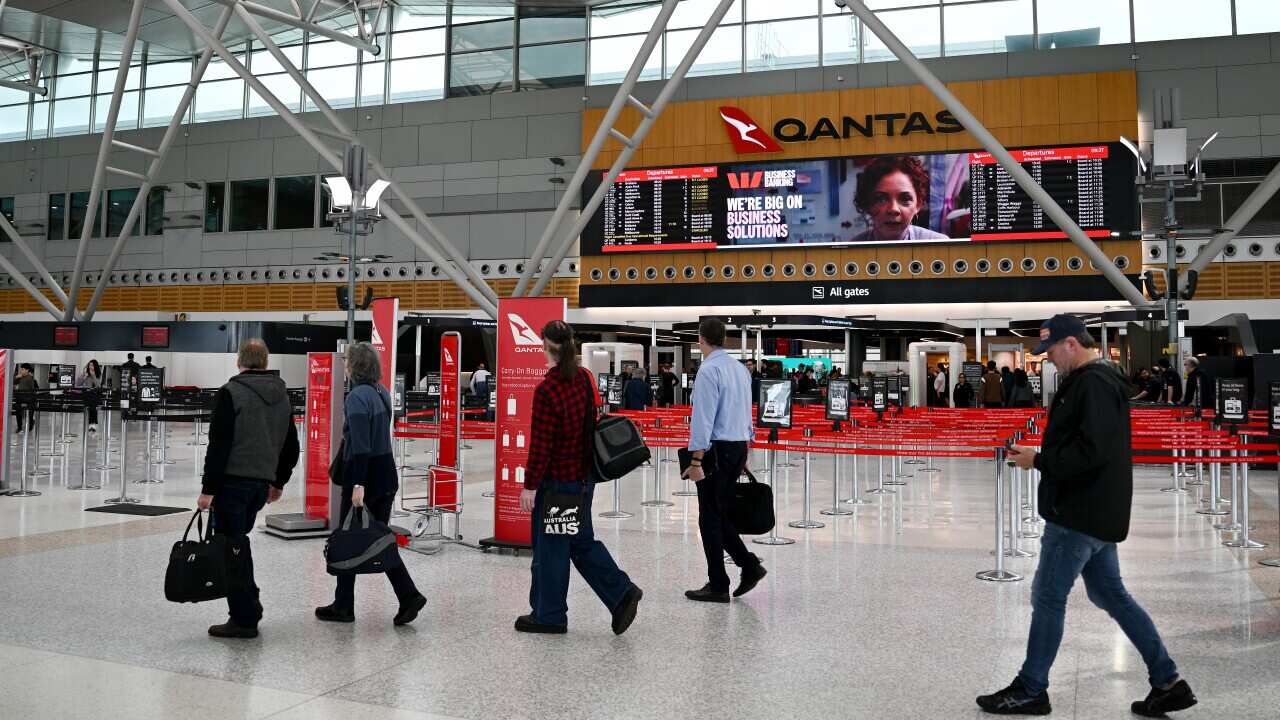Key Points
- Alejandro Fernández Allende lost both his grandfather and mother to suicide.
- He reflects on the events in Chile 50 years ago when a military junta forcibly took control of the country.
- He says he is troubled by the deep divisions still present in Chilean society.
As with millions of Chileans, 11 September is a time of reflection for Alejandro Fernández Allende.
He is the grandson of Salvador Allende who was ousted as president of Chile in a military coup by General Augusto Pinochet on 11 September, 1973.
The coup was the beginning of a 17-year reign by the junta which claimed an estimated 3,200 lives and the internment and torture of a further 38,000 Chileans.
Now living in New Zealand with his long-time partner, Ramón, Alejandro travelled to Sydney to take part in commemorations around the 50th anniversary of the coup.
"This is the time to speak, to remember, this is the time to be there for all those people who don't have a voice,” he told SBS Spanish.
“Beyond our own political ideologies, we are talking about things that are basic, they are fundamental, such as the right to life, the right to have an opinion and the right to live in peace.”
'Grandfather saved us'
Alejandro said that on the morning of 11 September, 1973, his grandfather had urged his daughter, Beatriz Allende Bussi, to leave the presidential palace known as La Moneda.
She was eight months pregnant with Alejandro and had gone to the palace to support her father, who later took his own life rather than be taken prisoner by the military.

The Chilean presidential palace, La Moneda, after being hit by rockets from the country's air force. Source: AAP
“(He) was the one who got her out - not just her, but Isabel, (his other daughter) who was also in La Moneda; Allende managed to get these women out at the last moment and that pain never left my mother,” he told SBS Spanish.

Two months after the coup in Chile, exiles in Cuba, Beatriz Allende Bussi and Luis Fernández Oña, welcomed Alejandro. Credit: Supplied
Along with him and his mother was his sister Maya and his father, a Cuban and member of Fidel Castro's secret service, Luis Fernández Oña. His real name was Rodolfo Gallart Grau.
He said his mother shared with him Castro's words after visiting her in hospital: “My mother was with my father and I was there in the crib, a newborn, and Fidel said: 'Look, this child knew bullets before he was born'."

Alejandro's father, Luis Fernández Oña (L), and Isabel Jaramillo, the former assistant to Chilean president, Salvador Allende. Credit: Supplied
'She never forgave herself for her father's death'
He said his mother went on to work with Chilean refugees who fled to Cuba “tortured and torn to pieces”.
“She (wanted to keep) busy because she really never forgave herself for leaving La Moneda. She never forgave herself for leaving the president alone. From a symbolic point of view, my mother died on the same day as my grandfather,” he said.
On 11 October, 1977, just shy of his fourth birthday, he said his mother took her own life after battling depression for many years.
"My mother had no personal life. She dedicated her life to solidarity aid campaigns from the start and it was saddening. She was treated for depression in Cuba by psychologists, by doctors," he said.

Beatriz Allende Bussi. Credit: Supplied

Beatriz Allende Bussi. Credit: Supplied
“In fact, I have quite a few arguments with people on the left, who are profoundly (homophobic), but not all of them. But in the 80s, there was a lot of sexism, a lot of homophobia.
And for me, it was very very difficult. I actually thought about suicide as a child to spare my family all this shame because it was impossible, in the Cuba of the 80s, to be gay and be Allende's grandson.Alejandro Fernandez Allende.
Alejandro and his sister Maya eventually went to live and study in Chile after the dictatorship ended in 1989.
In 2011, he said he had had the opportunity to see his grandfather for the first time during an exhumation of his remains.

Salvador Allende (R) and his wife, Hortensia Bussi. Credit: Supplied
He said seeing his grandfather's remains had given him a sense of closure.
'Toxic' environment in Chile
Alejandro said he preferred to remain in New Zealand during the 50th anniversary commemoration of the Pinochet coup.
“Going to Chile at this time would be somewhat difficult for me,” he explained.
“The environment in Chile is now extremely toxic, once again there is this division that as a society we have not been able to talk about."
I am concerned about what is happening and also about the weakening of Chilean democratic institutions.Alejandro Allende

A memorial to President Salvador Allende in the General Cemetery of Santiago. Citizens have been making a pilgrimage to the cemetery as part of 50th anniversary commemorations. Source: AAP / SOPA Images/Sipa USA.
Australia's role in the coup
Alejandro said he had long suspected the then Australian government's role in overthrowing the Allende government, in particular the collaboration between Australian secret agents agents and the CIA.
Despite the evidence and the fact that the United States has declassified numerous documents that prove this relationship, the Australian government is still reluctant to publish information that reveals the details of this participation.
“I don't know what else they're hiding and why they don't want to (talk about) it,” Alejandro said.
“I think it's interesting and it's a topic that I'm going to follow, because this is a country that I love. I've (visited) many times, I have a lot of friends here and I'm interested in knowing what happened.”
Readers seeking crisis support can contact Lifeline on 13 11 14, the Suicide Call Back Service on 1300 659 467 and Kids Helpline on 1800 55 1800 (for young people aged up to 25). More information and support with mental health is available at and on 1300 22 4636.
If you or someone you know is experiencing, or at risk of experiencing, domestic, family or sexual violence, call 1800RESPECT on 1800 737 732 or visit
